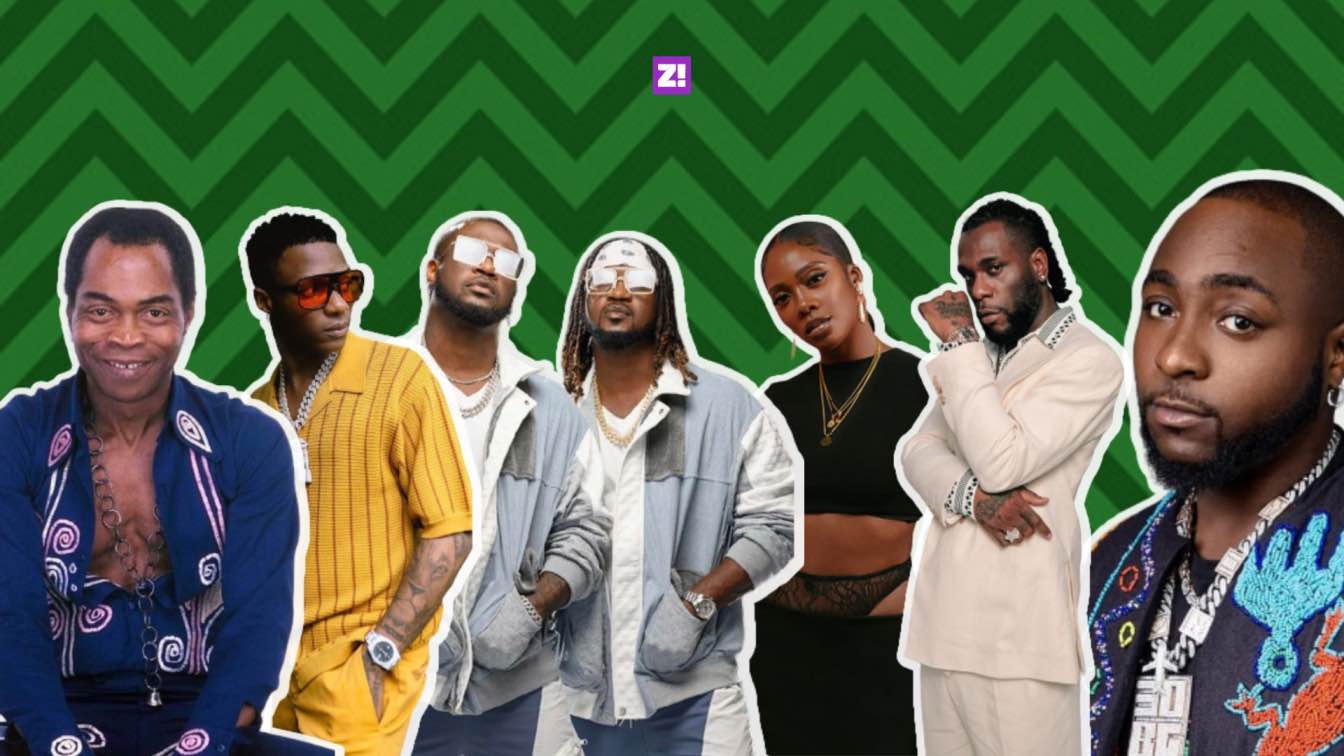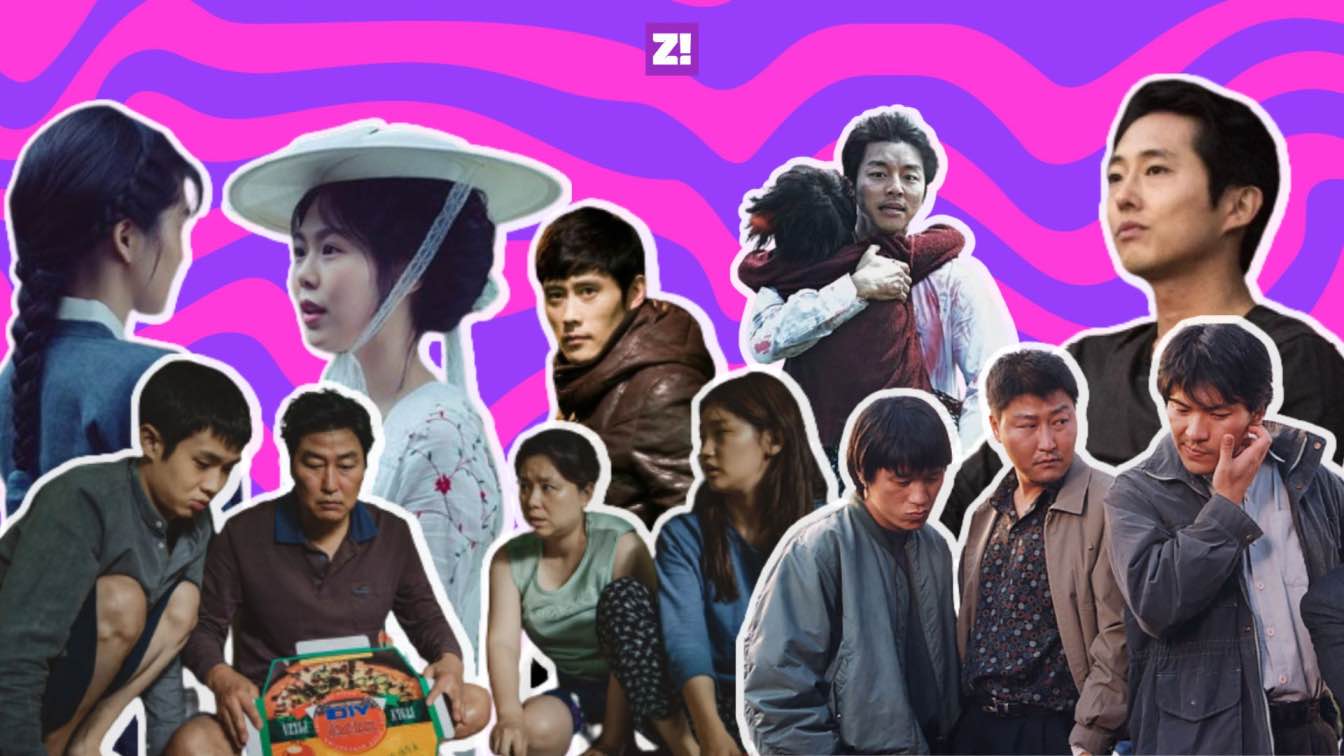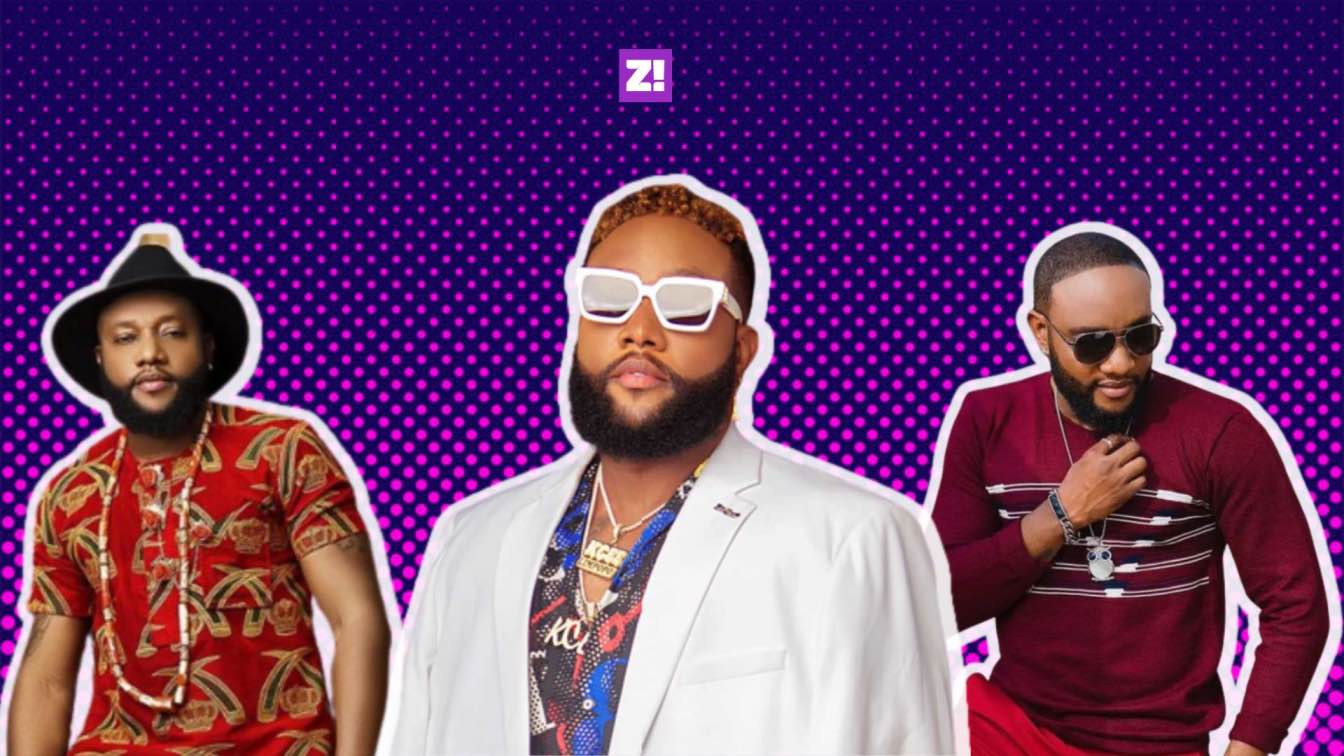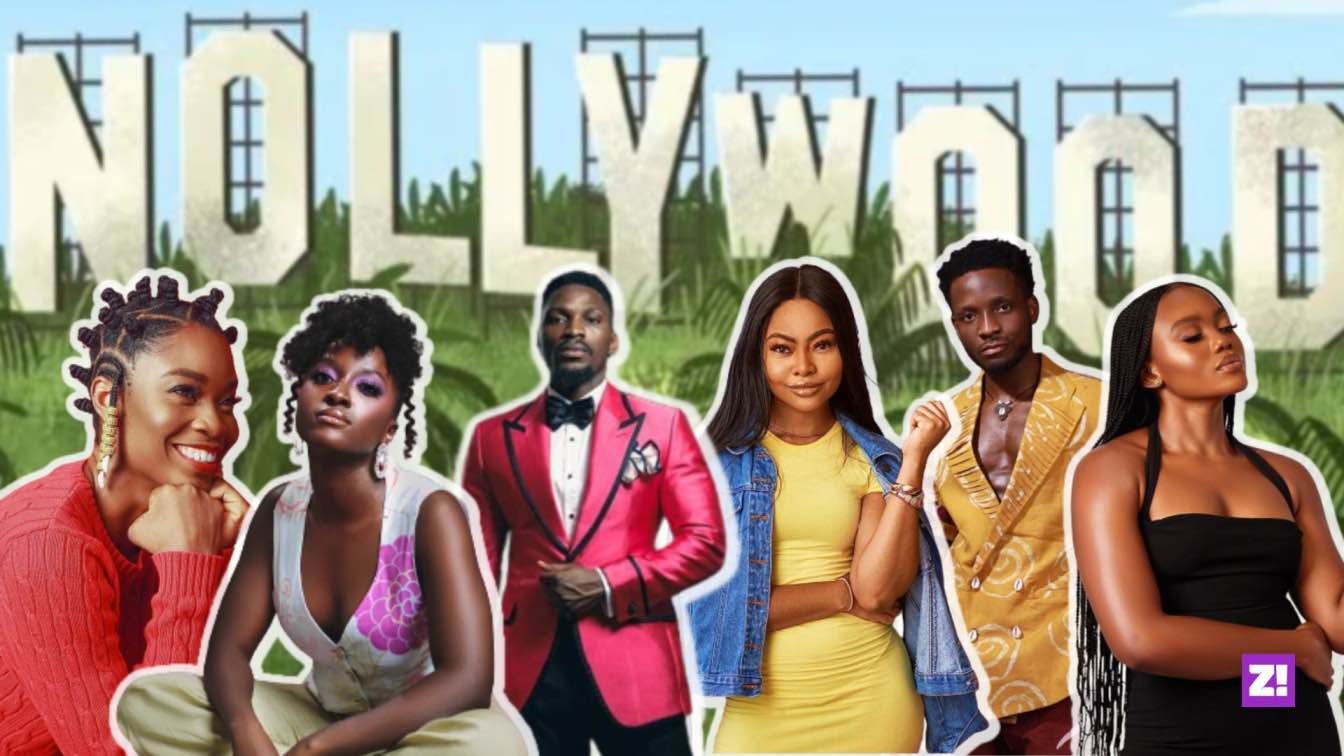What does it mean to be a man? Surely, it’s not one thing. It’s a series of little moments that add up. Man Like is a weekly Zikoko series documenting these moments to see how it adds up. It’s a series for men by men, talking about men’s issues. We try to understand what it means to “be a man” from the perspective of the subject of the week.
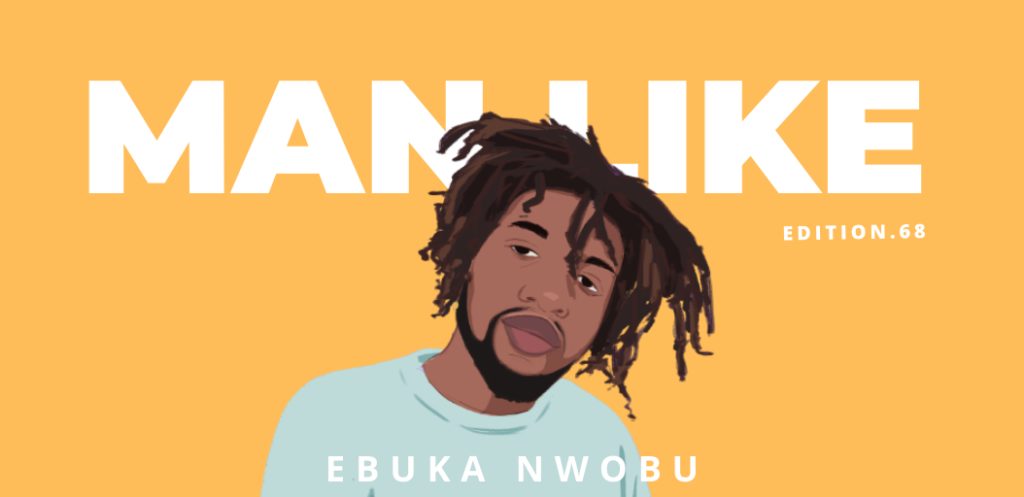
Today’s Man Like is Ebuka Nwobu, a creative producer at Ladder, Lex & Booker (LL&B). His production credits include Tem’s Damages and Crazy Tins, BOJ’s Abracadabra, Rema’s Dumebi and OdunsiTheEngine’s Star Signs. He has also produced ads for Martell, Jameson and PiggyBank.
In this episode of Man Like, he talks about how his family’s financial background affects his relationship with money, taking responsibility as the first son, being a Christian in “uncool” times and how money stops nonsense.
What was growing up like for you?
I grew up the first son in a family of six boys from a lower middle-class family. My childhood was peculiar because even though we lived in a rough area and didn’t have any money, because our parents sheltered us from our surroundings, we ended up being ajebutters. Thinking back, I only started speaking pidgin English after I was done with secondary school. My parents had shielded us from our immediate environment for so long, I didn’t even know how to speak pidgin English.
If I didn’t tell you about our financial situation growing up, looking at me, you wouldn’t know.
Through all of this, was there a moment that stood out to you in your childhood?
Being Nigerian and with everyone wanting a grass to grace story, I’m tempted to mention the time our landlord chased us outside the house. But when I think about it, what stood out was all the times richer family members disappointed my parents despite making promises to help us. Seeing my parents go through all of that helped me realise that no one can change my situation, just me. I’m independent because of my background and I believe that anything I need, I’d just have to get it for myself.
This is why we should eat the rich. What was it like being the first of six boys?
I was very aware of my responsibilities from a young age. My mum had my fourth brother when I was in primary school, and I became responsible for taking my two immediate younger brothers on a bus to school. Even though they gave us money, I would convince passengers to lap us so I could take the money back home to my parents. They didn’t ask me to do this, but I knew I needed to do all I could to make things easier for them.
Even now, I have to be exemplary to my siblings. I have to show them through my own life that they can do anything they want.
That sounds like a lot of pressure.
Not for me. It’s all I’ve ever known. I was born into it.
Coming from this background, I’m curious about your relationship with Money
Other people might not get this, but I don’t rate money. I’ve seen it come and go so I don’t place too much importance on it. I have significantly more money than my family did when we were young, but it hasn’t changed anything about me. I know that if I lose everything today, I’ll be fine. I do my best to control money, as opposed to letting it control me. Don’t get me wrong, I save, but when it’s time to spend, I’ll do it well because this life is one.
All right. Diving into your creative work, what would you say is the most challenging thing about being a Nigerian creative?
Executing ideas in a place where everything seems to be designed to make you fail. To be a creative in Nigeria, you have to be adaptable and flexible in a way that constantly puts your creativity to the test. You’re trying to be creative, while also creatively tackling all the problems that keep rearing their heads.
Problems?
Mehn, we’ve had to rewrite stories on set because of one disappointment or the other and there was also the time we had to go hunting for generators on a rainy night in the middle of covid curfew because PHCN took our power and our backup generator said “not today”. Another crazy instance was the time we had to escape a gang war which broke out right in the middle of our shoot, all because a fight scene in the video inspired an actual fight.
Nigeria and wahala. LOL. How do you cope?
It’s God. Being a Christian makes it easier because I know that according to the bible, there’s nothing I can’t do.
Interesting. How did you find God and faith?
Finding God for me wasn’t like a big-bang type event. It happened over a period of time and is in fact still happening. The university was my first major exploration of independence — financially, physically and spiritually. I went to church because I wanted to, not because I was made to. During this time, I’d be in moments of worship so intense, there was no doubt in my heart that I was communing with a power beyond the natural. I’d learn spiritual principles, practice them and see physical results. I’d be in meditation and gain supernatural insight on various issues. I’d be filled with anxiety, pray about it and gain peace that can’t be explained by I couldn’t explain rationally.
Finding God for me was and still is the sum of all these experiences.
Tell me about being a Christian in the creative space
For me, I subscribe to a personal relationship with God through Jesus Christ. It’s useful to me because it’s how I make sense of the world. I believe we all need a foundation of some sort and the bible is the through which I gauge my identity.
My parents started my Christian foundation. But while your parents might try to indoctrinate you, you have to know God for yourself. If not, it’s not real.
Have you ever struggled with your faith?
Earlier in my journey, I struggled a lot with ideas propagated by Christianity. Some were things touted by preachers and some others were things from the Bible itself. Atheists have questions about God, I have asked God these questions too. Questions are important because they help us grow and unlearn as Christians. I find answers by asking the Holy Spirit to give me insight. I sought to know for myself what the truth was, not what the pastor said, but what God himself was saying.
Spirituality is my secret weapon to defeat everything that life throws against me. Even if I find out later that God is not real, it would still have been beneficial to me because it gave me the vim to face life.
What are some things you’ve had to unlearn in your Christian journey?
There’s a culture around Christianity that is indoctrinated into us as we grow in Nigeria. It’s very judgemental and exclusionary. For example, a lot of people justify homophobia using Christianity, but my personal study of the Bible informs my current belief that gay people are indeed born gay. I used to argue that gay people chose to be gay until I read Matthew 19:12 and it answered the question conclusively for me. There’s also the guilt trip approach to getting people to contribute money to churches. It doesn’t work for me anymore because I know my blessings are not tied to my offerings.
We exist in a time where Christianity is not necessarily “cool” on the internet. Has this influenced your relationship with God?
No. My Christianity revolves around my personal relationship with God and I believe that’s something that most people lack these days. For you to believe in something, you need to test it and have a personal conviction about it. There’s nothing wrong with embracing vibrations, astrology etcetera, the important question is do you actually feel a connection to these things or are you just repeating cool catchphrases off the internet? If you’re following the herd, then you’re not that different from your parents who embraced Christianity without asking questions or discovering Christ themselves.
I’d also like to point out that spirituality is not about what’s “cool”, it’s about what works for you.
That makes sense.
I’m far from a perfect Christian. Even when I’m doing bad things, I know I’m doing bad things, but it doesn’t change the fact that I’m a Christian. I’m still in the process of growth. It’s just like me being an Igbo guy and doing something “un-Igbo”. It doesn’t change that my name is still Chukwuebuka Nwobu. We’re all learning.
LOL. You know what? Fair. Your style is sick, but I’m curious to know if there have been weird reactions to the way you dress?
Choosing to grow locs is not something that makes my mum happy. LOL. But I just like to do whatever I want to do. As a human being and as a Christian, I believe I have the liberty to express myself the way I want to as long as it doesn’t harm anyone. For example, I went to my village for a funeral with my hair and earrings and my dad’s siblings had a lot to say. I, however, noticed that people couldn’t say it to me directly because where there’s perceived success, you can almost get away with anything. They think I’m rich and they don’t want to offend me. Rules are for broke people in Nigeria.
If you no get money, hide your face. LOL. What gives you joy these days?
I like partying with my bros and working on all my shoots. To be honest, my general dispensation is joyful.
Come through, black boy joy. As a big fan of your work, I’m curious about your creative journey.
Most people don’t know this, but I used to be in a boy band in university. LOL.
Stop
Yeah. I was in this church creative crew and someone randomly asked me to drop a verse on a song they were rehearsing at the time and that’s how I became a rapper. Leaving university, I realised that to push my songs, I would need money and I didn’t have it. I eventually had to pivot towards something else I was good at and that was content creation, something I had been doing since I was a child organizing dramas in church.
My brothers, my friends and I decided we would create shows similar to what we saw on channels like E! and put them on YouTube. We actually interviewed Falz, Yemi Alade and a couple of other stars at the time. Coordinating the interviews sparked my interest in presenting and I started auditioning for presenting jobs around Lagos. To be honest, I wasn’t very good. I had jitters and it would affect my speech. It was at one of the auditions I bombed that I actually pitched myself as a producer to the company. I showed them the things we had done on YouTube and they hired me.
Mad o!
After a while, I left there to work freelance before getting a job at Mavin as the Head of Visual Production. Leaving Mavin, I decided to start and focus on my production company Ladder, Lex & Booker (LLB).
What’s the best part of your job?
It’s funny because what I hate the most is what I also love the most about it — the rush. There’s something beautiful about bringing something to life amidst all the chaos. There’s a saying that creatives are the godliest because when you think about it, the first thing God did was create. Even if I wasn’t making money, it’s something I’d still do.
You’ve been doing this for a while now, what is your idea of success?
I think I’m already successful. I’m not at the apex of my career, but I’m making money from something I enjoy. To me, that’s success. For my company, I want people to look at our work and say we brought the Nigerian film industry to a level at par with global standards. I also want people to say we created opportunities for creatives in Nigeria.
I’m rooting for you.

